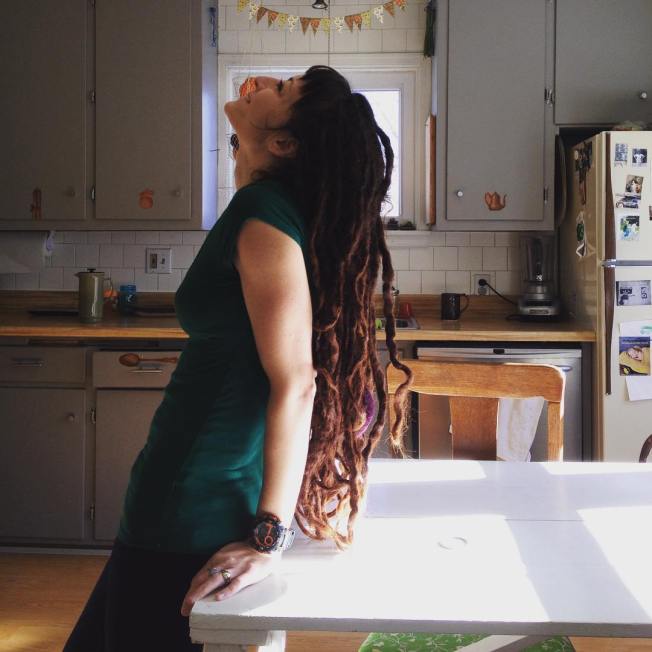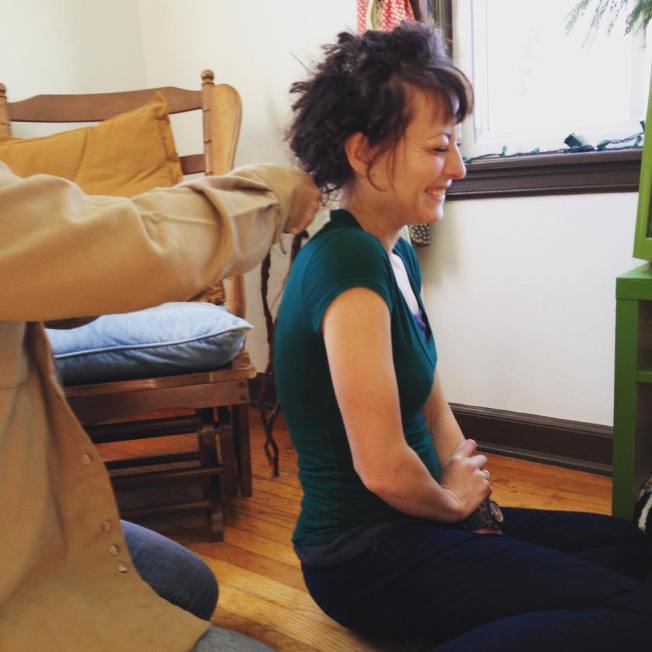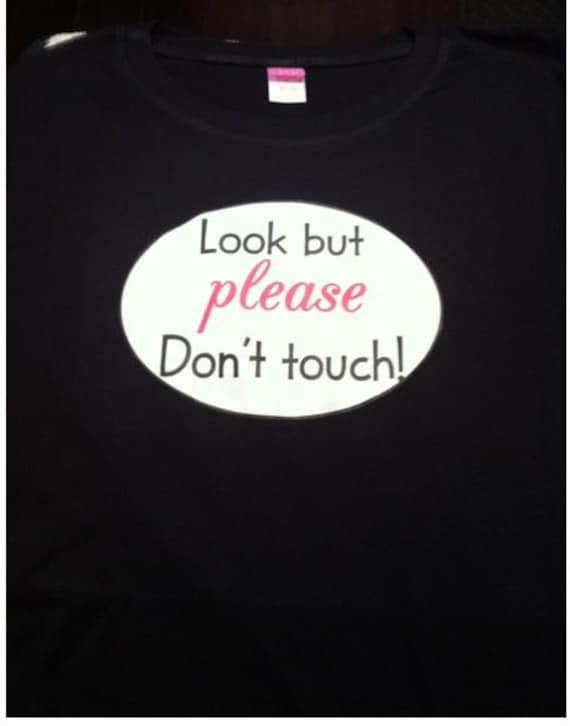This is a birth story. It is not a story of the zen-like labor-induced state of relaxation that some women claim accompanies the delivery of a child, where there is no mention of fluids or myriad of inescapable, agonizing tensions moving from front to back, ribcage to tailbone. If anyone tells you that labor is blissful, they are delusional. Labor pushes at you gradually, over minutes and hours and sometimes days, shoving you through the wall of muscle memory and pain threshold until you find yourself sprinting, sprinting through a long tunnel and at the end is…well, the end. And your child.
There is no limit to the advice one receives in regards to pregnancy, birth, and child-rearing. I sometimes think that even if a woman had no mothers or sisters or aunties or random female busybodies in her life, she could sit very still and hear the omnipresence of everything that has ever been said on the subject. In my case, let’s begin with examining Advice #1: Your first baby is never on time. This is actually supported by statistical evidence; fewer than 5% of babies are born on their due date. As a result, I anticipated a long, lazy week in which I would spend my newly-freed hours vacuuming a rug here and stitching another baby hat there until my daughter decided to make her entrance into the world.
That didn’t happen. Apparently, she knew that she was expected on a certain day and she made damn sure to arrive on time.
I woke up sometime around 4am on Tuesday, November 25, because no matter which way I turned or twisted, I couldn’t get comfortable. It took me a few moments to realize that this wasn’t a result of my bulging stomach, or a back that hauled around extra pounds for months, or legs that were tired of stairs and squats and stretches. This was something else. I got up and assessed the situation. The first thing that I noticed was that I was leaking fluid. Because I had tested positive for GBS early in my pregnancy, this threw a wrench into my original plan of laboring at home for as long as I could. That’s the downside of working with a hospital. It’s the price I knew I might have to pay for choosing to deliver in a more traditional setting instead of in a birthing center or at home.
Instead of baring myself to the ubiquitous eye of the hospital time clock, I woke Jason up. That man was ready. He whipped out his phone, booted up the contraction timer app, and gallantly sat with his thumb poised over the timer button while I texted Elissa, my doula. Still unsure of what to do about the pesky fluid leak and the impending hospital trip, I stayed in bed for another hour or so. Jason eventually went back to sleep, likely with his thumb still hovering. I timed my own contractions for awhile and came to the conclusion that I was going to follow Birth Advice #2: Women in labor should typically trust their instincts. I didn’t call the hospital. This was confirmed by Elissa’s responding text, which told me that I should do what I was comfortable with.
My contractions were very manageable for most of the morning. Although they were fairly lengthy, they averaged about 5-6 minutes apart. Ideally, we wanted to wait for the “3-1-1” to go in – 3 minutes apart, 1 minute in length, for 1 hour. I filled up the hours of waiting for this to happen by moving from room to room. While Jason continued to sleep, I went into the baby’s room and sat on the yoga ball, looking around at the yellow walls and the baby overalls on hangers and thinking of how simultaneously bizarre and beautiful it was that soon, my daughter would be here in this room. I migrated to the couch in the living room and did some stretches while bent over the arm. When Jason woke up for good, he offered to sit with me and help me work through contractions. I sent him off to his lists and laptop so that he could get some work done. Besides, I was doing well on my own. Our childbirth instructor had passed on several different relaxation techniques, and I was pleasantly surprised to find that I actually remembered them. After showering, I spent a couple of hours in our bedroom, enjoying how clean and organized everything was and laboring on my knees with my head and arms resting on the bed. I went over my memories of canoeing the Platte River in Michigan; the white of the sand, and the absurdity of whole troupes of drunken twenty-somethings with coolers of beer on inner tubes, the sparkling tips of Lake Michigan’s wave flashing like a million tiny smiles up ahead of us…
Birth Advice #3 – labor never really goes how you think it will. At some point, my contractions moved into my back and set up camp there. Not like an overnight dirt-ball camp. More like a week-long glampfest complete with solar showers, pudgy pie makers, and elaborate tents. In other words, they got comfortable, and I got quite uncomfortable. I was starting to feel a bit concerned about the fact that nothing had really changed in terms of timing. I went back out to the couch to be near Jason, Googled the possibility of labor starting and stopping, read multiple online forums about women despairing their way through four-day labors, and timed another round of contractions. They were still long and spaced out, and I was still leaking fluid.
Sometime around two, I felt ready to call the midwife in triage and at least have a conversation with her. What should have been relatively simple – a call to the reception desk and a transfer to triage – turned into a fiasco. To begin with, we have terrible cell phone reception at our house. The receptionist kept asking me to repeat myself. Normally, this is a minor annoyance. When you’re trying to fit in a conversation between back labor contractions, it becomes a major stressor. I’m going to give said receptionist the benefit of the doubt and choose to believe that she must not have heard me accurately when I said, “I’m in labor and would like to talk to the triage midwife.” Because somehow, I ended up waiting on hold for almost ten minutes, only to have my call picked up by the receptionist at the midwife clinic. Again, in faltering, static-ridden, teeth-gritting bursts of words, I explained myself to another receptionist, got put on hold for another ten minutes, and had three or four more contractions. Thinking that a fresh start would solve the problem, I called the main desk again, spoke to the confused receptionist again, and told her that I was in labor, again. She had an uncanny ability for asking me questions at the exact moment a contraction would peak. At some point, Jason took the phone and forcefully said, “Look, my wife is having contractions. She’s IN LABOR. Can we talk to triage already?”
That’s why husbands come in handy.
I think it took me about thirty minutes before I finally talked to the midwife in triage.
“Come on in,” she told me.
This was easier said than done. Jason had to run out and pick up some grocery essentials – good labor food like beef jerky and fresh fruit and coconut water, and I had to finish packing a few last minute things. While he was gone, I managed to drop a mason jar holding Q-tips onto the bathroom floor and strand myself on the rug in my bare feet because the very last thing I wanted to deal with while in labor was cutting a toe on a broken mason jar. Jason had to break me out with the broom when he got back. We left the house just in time for rush hour traffic, and, ironically, a light snowstorm. We attempted taking side streets to get to the hospital and ran into the other 50% of the commuting population attempting the same thing. Somewhere in the run-down neighborhoods between downtown and the north side, while we were stopped at a light, a car went into a slide behind us and came quite close to slamming into our rear bumper.
And, well, contractions.
While we waited in the hospital lobby, a young mother with a six-month old had a lengthy conversation with us about having children, how to not spoil them, her natural-epidural labor, and the importance of using birth control after having a baby. Jason gamely kept the talk going while I stretched my smile over my teeth and tried not to think about the landmines going off in my lower back.
Finally, we were admitted back into triage. Gretchen, the triage midwife, strapped on the EFM, which our childbirth instructor had lovingly referred to as “the hockey pucks”. Jason kept telling me to stop watching the little topographical charts of contraction intensity and heart tones, and I kept peeking at them because it was mildly fascinating. There was my mayhem, right there on the screen for God and everyone to watch! The nurse came in and asked me to roll onto my side. I found the request preposterous, mostly because it was insanely painful to lay on my side and also because she offered me a cup of cold apple juice when I declined. I had no idea what the connection was, but I did enjoy the apple juice immensely. Eventually I concluded that they wanted to see some variation in the baby’s heartbeat. Along with creating a fond, comforting association with cold apple juice, the sugars did the trick. Everyone was much happier, myself included.
Gretchen checked me for dilation. She found quite a bit of fluid, but said that my bag was still intact, which was a relief. However, the bigger relief was when she informed us that I was five centimeters dilated, and that I was going to be admitted so that I could have my baby! I felt so productive. Despite the fact that my contractions were still keeping up the same rhythm, I had made a good deal of progress at home. Jason texted Elissa. I drank more juice. And then we moved up to the delivery floor to get the party going. Elissa showed up with her assistant, Claire. We met the nurse. I sat on a birthing ball, ate cashews, and felt pretty darn good. Erin, the midwife, joined us, and we all had a good time chatting about dogs and fleas and working through contractions.
Birth Advice #4 – women who want a natural labor absolutely need support. This is true. I had full intentions of keeping my labor intervention-free. No pain meds, no epidurals, no pitocin. Part of me wishes that I could say it was a purely noble desire to give my baby as healthy a start as possible, but the truth is that part of my motivation has to do with the fact that I loathed the thought of being hooked up to anything involving needles/IVs. I had to consent to two rounds of antibiotics, but my birth plan indicated that I wanted to have a capped IV when the medication wasn’t being administered so that I was free to move around as I pleased. Both Erin and the nurses were very supportive of my wishes. As soon as she came in and introduced herself, she also let me know that I could wear my own clothes, eat as often as I wanted to, use the whirlpool, and do whatever I needed to do in order to have a natural birth. It meant quite a bit to me to have support from her like that. I can honestly say that if I hadn’t had two doulas, a very encouraging husband, and a medical staff that was on my side, natural birth would have been nearly impossible.
We labored in the room for an hour or so. Elissa and Claire were magical. As soon as I told them about my back labor, they tried using counter pressure on my lower back by pressing as hard as they could whenever a contraction came on. It turned out being so successful that those poor women pushed on my lower back more times than I can count that night.
“Your hands must get tired,” I said to Elissa.
“I have really strong hands,” she assured me.
My shower earlier in the day had been fairly comforting, so Jason and I tried hopping into the hospital shower. Unfortunately, it wasn’t quite as comforting eight hours later. It helped a little, but given the fact that I was trying to figure out what the temperature should be, trying not to slip, and trying to keep my dreadlocks dry, it was sort of neutral. Needless to say, that didn’t last long. We then tried walking the halls, stopping every ten feet or so for contractions. I leaned on Jason while Elissa and Claire pushed on my back. I remember the wooden floors feeling so nice and warm under my bare toes, but I also remember feeling as though I wanted to sit down and simultaneously feeling horrified at the thought of sitting down. I felt the same about standing. Or walking. Or squatting. I wanted to do anything that wasn’t whatever I was doing at the moment, and I also didn’t want to do anything at all.
Time during labor is strange. It just goes by, and you somehow stand completely still within it. It’s not that you feel it passing slowly, or quickly. It’s not that you feel it passing at all. It just is. Another breath. Another squat or lean. Hands pressing on my back. Cups of stale hospital coffee. The tongue-shrinking saltiness of cashews and beef jerky. Wanting the midwife to check but not wanting her to.
Eventually, in a small voice, I informed the team that I wanted to try the whirlpool. I had been trying to delay water therapy for as long as possible because the more time you spend in the tub, the less effective it becomes, but I was at the point where it was really the only thing that sounded comforting to me. It was just as good as it sounded; warm and relaxing and quiet. Jason got in with me. Whenever I had a contraction, we leaned into each other while the doulas did their counter-pressure. The nurse came in to check heart tones a few times, but otherwise the whole experience was oddly peaceful despite the fact that my contractions were very intense by this point. They were still quite far apart, and the water was so comforting that I dozed in between them. We sat in the tub room until the water got cold. I’d like to say that it was two hours, but I certainly wasn’t keeping track.
When we came back to the room, Erin checked me. I was eight centimeters, and fully effaced. She told me that if I felt the urge to push, I could start pushing. I think most women feel relief at this point. I, on the other hand, was starting to feel sort of wobbly and tired. I had been in labor for almost nineteen hours by then. I remember Elissa telling me that pushing was good; it meant that I would actually be able to use my contractions for something productive. I think I argued with her, insisting in a whiney voice that, no, they weren’t going to be productive and nothing was going to happen and this was never going to be over. While I had done a good job of keeping myself fairly serene throughout the day, sometime in the whirlpool I had started yelling during some of the worst contractions. Apparently, this is a tough habit to break once you start, and it’s not a very comforting habit to begin with. Screaming didn’t make me feel any better. I just couldn’t stay quiet anymore.
Good thing I was past the point of epidurals by then.
Birth Advice #5: pushing is great. This is a filthy lie. If you’ve never pushed before, pushing is hellacious. It’s a combination of feeling like you constantly need to pee or poop or vomit, accompanied by anvil-like contractions whipping your mind into a panicked frenzy where you start screaming because you’re convinced that nothing has existed before this moment and nothing can possibly exist after it. This was where the tunnel came in. I was draped over the back of the bed, digging in with my arms and fingers, and for all I could tell I was completely alone in the room. That’s how isolating the pain was. Occasionally, Jason was there next to me, and I remember recognizing his closeness, his scent, the color of his hair and beard and eyes. He asked me if he could go get something to eat.
“No,” I said sternly, and I didn’t find out until later that he asked me that because he was on the verge of passing out. Now when we tell that part of the story, I jokingly say that he shouldn’t have asked because anything that anyone asked me at that point was sure to get a “no” answer.
Did I want to try a different position? Did I want to eat something? Did I want some water? Did I want chapstick? No. No. No. I wanted to not be in labor.
This was where Erin showed her true self. My initial impression of her was that of a tiny, easy-going woman who would gently guide me through the birth of my daughter. Not so. Erin was intense. She barreled into the tunnel of labor without hesitation, came right up next to my face, and told me in much more diplomatic terms to get my shit together. Which, at that point, I needed.
“You’re in control,” she kept saying, as though she could somehow sense that in the middle of my yelling and gripping and whining that I felt completely out of control.
She was awesome.
It’s all brief snapshots from this point. Elissa tells me that Erin is changing into clothes to deliver my baby. I’m in the bathroom with what feels like six other people watching me labor on the toilet. I’m squatting next to the bed. Squatting on the bed. Laying on my side. My arms hurt from hugging the squat bar. Erin tells me that she sees a head, and the head has dark hair. Somewhere in the tiny cubbyholes of my thoughts that aren’t focused on hurting, I remember how I hoped for a baby with dark hair. Elissa and Claire and irrevocably kind in their affirmations. According to them, I’m still a strong, capable woman, even though I keep saying, “I can’t. I can’t. I can’t.” Erin tells me to stop screaming in such a high voice, to try being more guttural because it’s more productive. She tells me that I need to try harder, that I’m still in control. My water breaks. There’s fluid everywhere, and of all things to worry about, I’m embarrassed by this. I’m sweating, sweating like the end of a long summer run at high noon. And then, something hurts more than anything has hurt so far and she says, “There. That’s it. You need to push through that. That’s the head crowning.” And all I can think is, “Oh Christ. Not that.”
This was where I overcame. When it comes to pain, I’ve always walked right up to edge of the very worst of it and then gripped my breath and muscles and sanity as if to ward it off. Now, I couldn’t. Not only did I have to face it directly, I had to go through it with deep, productive breathes and focused muscles. I had to do this thing that my contraction-addled brain was convinced I was long past capable of. So I did.
She came out with her hand tucked up next to her head, but of course, I didn’t know that. All I knew was that something had changed, that the thing that had hurt more than anything hurt in my life wasn’t quite as bad. After nearly four hours of pushing and twenty-four hours total of labor, I pushed once more.
And then I had a daughter, moving towards my chest in Erin’s hands as the nurse threw a pink cap over her red, wrinkled forehead. Finavaire Andrea, named for my sister and Jason’s sister. A girl named Finn, born exactly on her due date. God, she screamed. She flailed her skinny, uncoordinated limbs and scrunched up her weeping eyes and now that I know her, I know that she was undeniably annoyed. Indignant. Appalled, at having been shoved so forcefully from the warmth and the darkness into the cold severity of my sweating arms.
Birth Advice #6 – you’ll completely forget about your labor as soon as you meet your baby. This was not entirely true for me. I wanted to enjoy her, to feed her and take in the wet, dark hair and the perfect wrinkles of new skin, but I couldn’t. Elissa and Claire helped me peel off my soaked birthing clothes and I fumbled with latching her on and I kept thinking that once I fed her, she would stop crying. I was so, so tired. I’ve never been that tired. Not after driving through the night on a road trip, or hiking the Napali Coast, or running my first four consecutive miles. I was so tired that I was actually relieved when they took the baby away to put her under the warmer because I was afraid I was going to drop her. There was quite a bit happening that I wasn’t completely aware of; Jason, taking off his shirt and holding our daughter so that she would have skin-to-skin contact from the start, Erin talking to me while she stitched me up, Elissa and Claire quietly gathering their things and leaving us to be alone, the weighing and testing and bathing.
As far as my birth story goes, there really isn’t much to tell after that, just hospital food and lots of strange, broken sleep and breastfeeding woes. And, of course, there was her, all heartbreakingly beautiful and peaceful and somehow perfect in her pink, shriveled newness. And while I kept meaning to write this sooner, I’m glad that I didn’t, because I know her now like I didn’t quite know her then. I know that she’s funny and brilliant, that she loves to laugh and that she smiles whenever she sees me. I would say that she’s exactly what I hoped she would be, but that would be a lie because she is a thousand times more wonderful than that, and when I write about the day she was born, it lays like a layer of dark, fertile soil beneath the garden of everything I’ve come to learn about her.
Birth Advice #7 – labor will empower you. Now, I see a woman in my reflection who has finally learned to accept that yes, pain is frightening, but it is not always destructive. It has taught me to trust myself, to trust my body and my instincts. It has taught me to lean into others for support. It has taught me that I’m strong and brave even when the most I can manage is a desperate chorus of, “I can’t, I can’t, I can’t.” Pain is like the sea on a windy day. You can stand in it, let it push and pull around you like the tide, but you will not drown. You will grow stronger because of it.

















